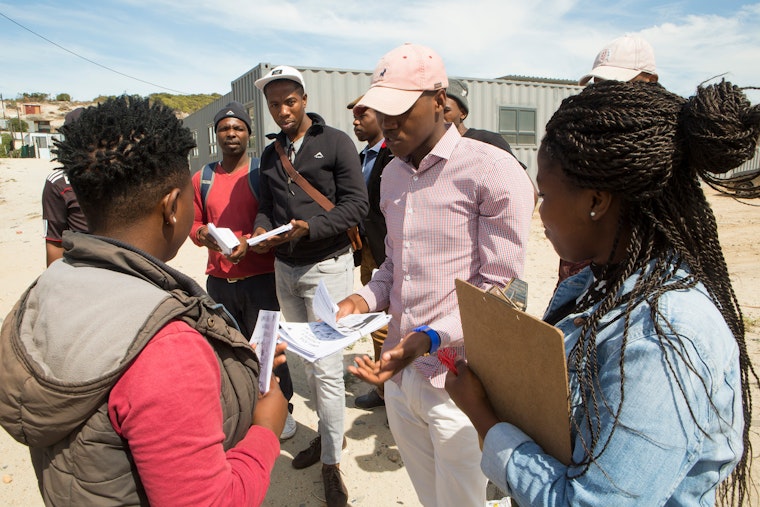Defending Frontline Activists in South Africa
By Sharan Srinivas

Before he was gunned down in front of his son, Sikhosiphi “Bazooka” Rhadebe—a leading environmental and housing advocate in Xolobeni, South Africa—telephoned others who had spoken out against mining interests along South Africa’s Wild Coast.
He was checking on like-minded activists’ safety and warning them that a “hit list” had been developed targeting human rights defenders in the area who stood up against mining interests. Two hours later, gunmen posing as police officers shot him at his home.
No one has been held accountable in the killing of Rhadebe, which advocates now see as the first data point in a disturbing new trend. Increasingly, those that stand up for environmental, housing, and land rights in South Africa face bitter—and often violent—attacks.
To counter this trend, the Open Society Foundations announced recently the creation of a new fund, hosted at the Southern Africa Human Rights Defenders Network, intended to provide support to activists. The fund will provide support services to activists depending on their needs and will include the provision of legal representation; emergency relocation for activists and their families; and physical, psychological, and medical support.
South Africa is rightly commended for its vibrant civil society, robust institutions and progressive constitution, which enshrines the fundamental rights of expression and assembly. But joint research conducted by Human Rights Watch, Earth Justice, GroundWork, and the Center for Environmental Rights reveals that communities who are exercising these fundamental rights have faced vicious reprisals.
According to the research:
- There is an ongoing pattern of police misconduct during peaceful protests.
- Local municipalities often impose extralegal restrictions on protest in mining affected communities.
- An environment of fear has been created among community activists.
Though activists based in South Africa’s major cities are well connected to the international infrastructure built to protect human rights defenders, many attacks against community-based activists located in rural and isolated parts of the country have gone unreported and unnoticed.
Of course, this new fund will not single-handedly resolve the challenges faced by activists in South Africa. The aspiration, however, is for the fund to serve as a vehicle of solidarity, and to strengthen the resilience of frontline community activists. What happened to Bazooka Rhadebe was not only a tragedy; it was a crime. Our hope is that this fund will help ensure justice is served and that activists in South Africa can truly exercise their constitutional rights.

Sharan Srinivas is a director of Programs at the Open Society Foundations.

